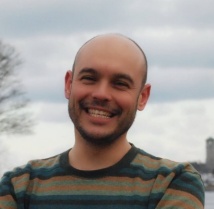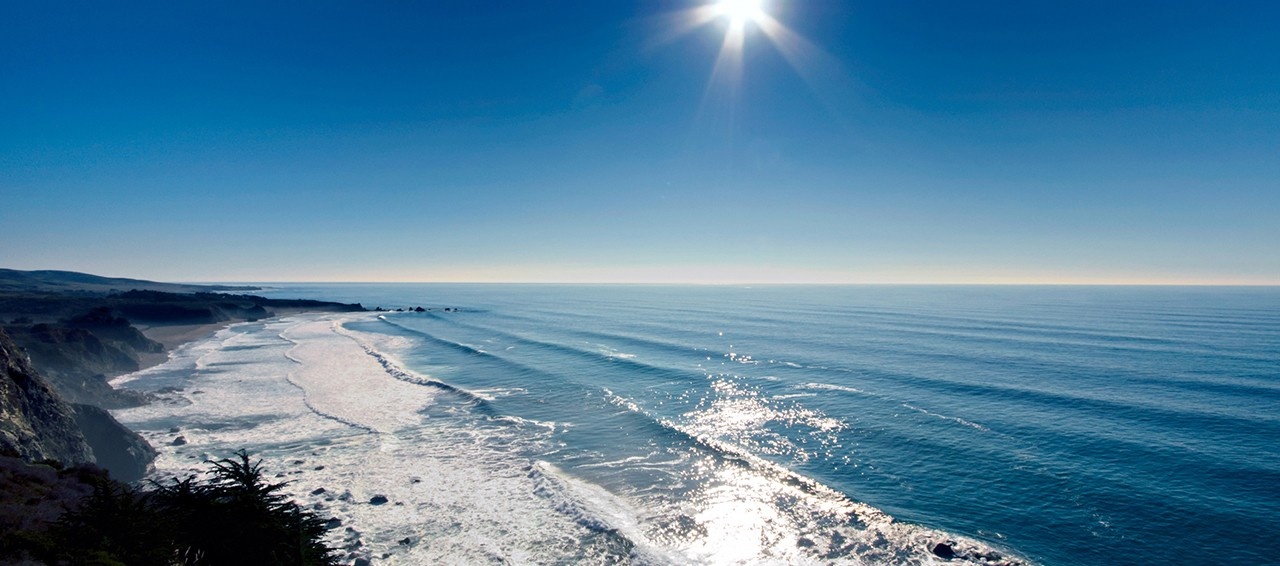Dr. Ramon Filgueira
Associate Professor

Dr. Ramon Filgueira, PhD
on sabbatical - July 2022-June 2023
Ìę
Email: ramon.filgueira@dal.ca
Phone: 902-414-1218
Mailing Address:
- Ecosystem-Based Management
- Ecosystem Approach to Aqauculture
- Ecological Modelling
- Aquaculture
- Filter-Feeder Trophic Interactions
- Filter-Feeder Bioenergetics
Current Courses
±«Óătv
RamĂłn Filgueira grew up in Galicia, Spain, where seafood has dominated the economy, culture and diet of the Galician people for centuries. He completed his undergraduate degree in Marine Sciences at the University of Vigo in Spain. He then went on to complete a Master diploma in Environmental Management and Sustainable Development at the University of Valencia. RamĂłn obtained his PhD in Marine Sciences from University of Vigo on the ecophysiology of mussels. In 2008, he came to Canada for a postdoctoral fellowship in ecosystem modelling at ±«Óătv University. In 2012, RamĂłn began a postdoctoral fellowship at the Gulf Fisheries Centre, Fisheries and Oceans Canada. There he developed ecosystem models of aquaculture sites that could be used for marine management decision-making. RamĂłn joined the Marine Affairs Program at ±«Óătv University in March 2016. Since then, RamĂłn has expanded the scope of his research to cover aquaculture from an interdisciplinary perspective, fully embracing an âecosystem approach to aquaculture.âÌę
Latest Honours
Prix dâExcellence 2015
Fisheries and Oceans Canada
The Prix d'Excellence is Fisheries and Oceans Canadaâs most prestigious award
honouring individuals and teams who have made exemplary contributions to the department. I received this award in 2015 as a member of the âAquaculture Carrying Capacity Teamâ (Gulf Fisheries Centre) in the category of âExcellence in Policy and / or Scienceâ. This award is a recognition of our ecosystem modelling work in Atlantic Canada and its application to assessing and improving the sustainability of shellfish aquaculture sites.
Research Interests
RamĂłnâs research goal is to promote the sustainable management of coastal aquaculture sites. His primary research tool is ecosystem modelling, which he uses to study aquaculture-environment interactions, explore ecosystem functioning, and establish precautionary management approaches. RamĂłn uses modelling tools such as scenario building and optimization to generate alternative and objective management strategies that can be used to inform marine spatial planning. Furthermore, RamĂłn recognizes the social-ecological nature of aquaculture, and accordingly, his research interests cover ecological, social and economic aspects. This interdisciplinary prism is fundamental for improving aquaculture, and coastal management in general, according to an ecosystem approach.
Selected Publications (*indicates student author)
Thinking outside the box: embracing social complexity into aquaculture carrying capacity estimations Kluger L, Filgueira R ICES Journal of Marine Science https://doi.org/10.1093/icesjms/fsaa063 (2020)
Key players in the Grieg NL Placentia Bay Atlantic Salmon Aquaculture Project: a social network analysis Maxwell R*, Filgueira R Marine Policy 113:103800 (2020)
The evolution and application of carrying capacity in aquaculture: towards a research agenda Weitzman J*, Filgueira R Reviews in Aquaculture https://doi.org/10.1111/raq.12383 (2019)
Mussels or tunicates: that is the question. Evaluating efficient and sustainable resource use by low-trophic species in aquaculture settings Filgueira R, Strople LC*, Strohmeier T, Rastrick S, Strand, Ă Journal of Cleaner Production 231:132-143 (2019)
Using media analysis to scope priorities in social carrying capacity assessments: a global perspective Kluger L., Filgueira R, Byron C Marine Policy 99:252-261 (2019)
Bivalve aquaculture environment interactions in the context of climate changeÌęFilgueira R, Guyondet T, Comeau LA, Tremblay R Global Change BiologyÌę22:3901-3913 (2016)
